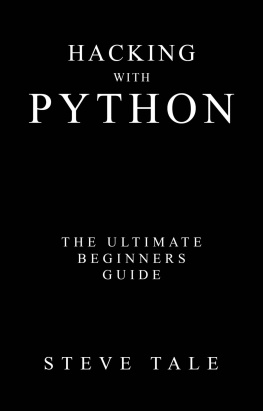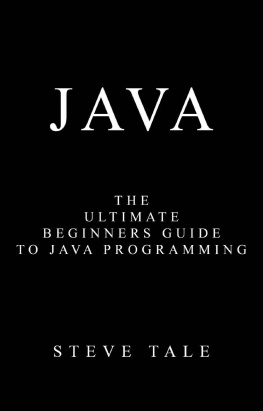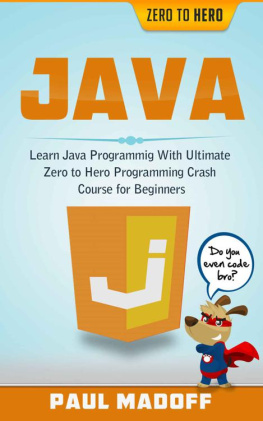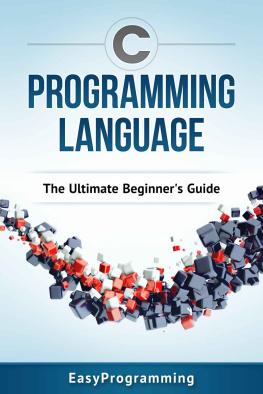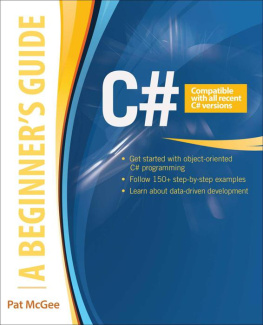SQL PROGRAMMING FOR BEGINNERS:
THE ULTIMATE BEGINNERS GUIDE TO ANALYZE AND MANIPULATE DATA WITH SQL
Eugene Gates
Table of Contents
Introduction
Network programs have become larger and more flexible.
In many cases, the fundamental scheme of operations is mainly a mix of scripts that handle the command of a database.
When you look at the structure of any business, you will see that it generates, holds, and then uses data.
Because of the different ways that the company will need to handle this data, they will need to find some method of storing the information.
In the traditional methods, known as Database Management System or DBMS, business organizations would have all the data in one place to help them out.
These systems are pretty simple to use, but modern technology has forced about some changes.
Even the most essential or basic data management systems have changed, and now they are more powerful than before.
This can be an advantage to some companies that have a large amount of data to keep track of or who may need to be careful with some sensitive information.
Out of all this, there was a new breed of data management that has been implemented known as the Relational Database Management System or RDBMS.
This was derived from the renown traditional DBMS, but it is going to have some more to do with the web as well as server and client technologies.
This basically means that they are going to help various companies with the management of data.
One of these new relational databases that will help to store the data in an easy and simple to use a method that also keeps it all safe is SQL.
What is SQL?
It is best to start at the beginning. SQL stands for Structured Query Language, and it is a simple language to learn, considering it will allow interaction to occur between various databases found in a particular system.
The original version was established in the 1970s.
This continued to progress in 1979 until IBM released a new prototype, the Relational Software Inc. that published one of the first SQL tools in the world.
This tool was at first called ORACLE, and it gained so much success that the company was able to split off from IBM and create the Oracle Corporation.
Even today, ORACLE is one of the leaders thanks to being able to use the SQL language.
The SQL is a set of instructions that you can use to interact with your relational database.
While there are a lot of languages that you can use to do this, SQL is the only language that most databases can understand.
Whenever you are ready to interact with one of these databases, the software can go in and translate the commands that you are given, whether you are giving them in form entries or mouse clicks.
These will be translated into SQL statements that the database will already be able to interpret.
If you have ever worked with a software program that is database-driven, then it is likely that you have used some form of SQL in the past.
It is likely that you didn't even know that you were doing this, though.
For example, there are a lot of dynamic web pages that are database driven.
These will take some user input from the forms and clicks that you are making and then will use this information to compose a SQL query.
This query will then go through and retrieve the information from the database to perform the action, such as switch over to a new page.
To illustrate how this functions, think about a simple online catalog that allows you to search.
The search page will often contain a form that will just have a text box.
You can enter the name of the item that you would like to search using the form, and then you would simply need to click on the search button.
As soon as you click on the search button, the web server will go through and search through the database to find anything related to that search term.
It will bring those back to create a new web page that will go along with your specific request.
For those who have not spent that much time at all learning a programming language and who would not consider themselves programmers, the commands that you would use in SQL are not too hard to learn.
Take your time in reading this book for this will be very helpful in guiding you as a beginner to SQL Programming.
Chapter 1: SQL Basics
The SQL (the Structured Query Language, Structured Query Language) is a special language used to define data, provide access to data and their processing. The SQL language refers to nonprocedural languages - it only describes the necessary components (for example, tables) and the desired results, without specifying how these results should be obtained. Each SQL implementation is an add-on on the database engine, which interprets SQL statements and determines the order of accessing the database structures for the correct and effective formation of the desired result.
SQL to Work with Databases?
To process the request, the database server translates SQL commands into internal procedures. Due to the fact that SQL hides the details of data processing, it is easy to use.
You can use SQL to help out in the following ways:
SQL helps when you want to create tables based on the data you have.
SQL can store the data that you collect.
SQL can look at your database and retrieves the information on there.
SQL allows you to modify data.
SQL can take some of the structures in your database and change them up.
SQL allows you to combine data.
SQL allows you to perform calculations.
SQL allows data protection.
Traditionally, many companies would choose to work with the Database Management System, or the DBMS to help them to keep organized and to keep track of their customers and their products. This was the first option that was on the market for this kind of organization, and it does work well. But over the years there have been some newer methods that have changed the way that companies can sort and hold their information. Even when it comes to the most basic management system for data that you can choose, you will see that there is a ton more power and security than you would have found in the past.
Big companies will be responsible for holding onto a lot of data, and some of this data will include personal information about their customers like address, names, and credit card information. Because of the more complex sort of information that these businesses need to store, a new Relational Database Management System has been created to help keep this information safe in a way that the DBMS has not been able to.
Now, as a business owner, there are some different options that you can pick from when you want to get a good database management system. Most business owners like to go with SQL because it is one of the best options out there. The SQL language is easy to use, was designed to work well with businesses, and it will give you all the tools that you need to make sure that your information is safe. Lets take some more time to look at this SQL and learn how to make it work for your business.
How This Works with Your Database
If you decide that SQL is the language that you will work on for managing your database, you can take a look at the database. You will notice that when you look at this, you are basically just looking at groups of information. Some people will consider these to be organizational mechanisms that will be used to store information that you, as the user, can look at later on, and it can do this as effectively as possible. There are a ton of things that SQL can help you with when it comes to managing your database, and you will see some great results.








